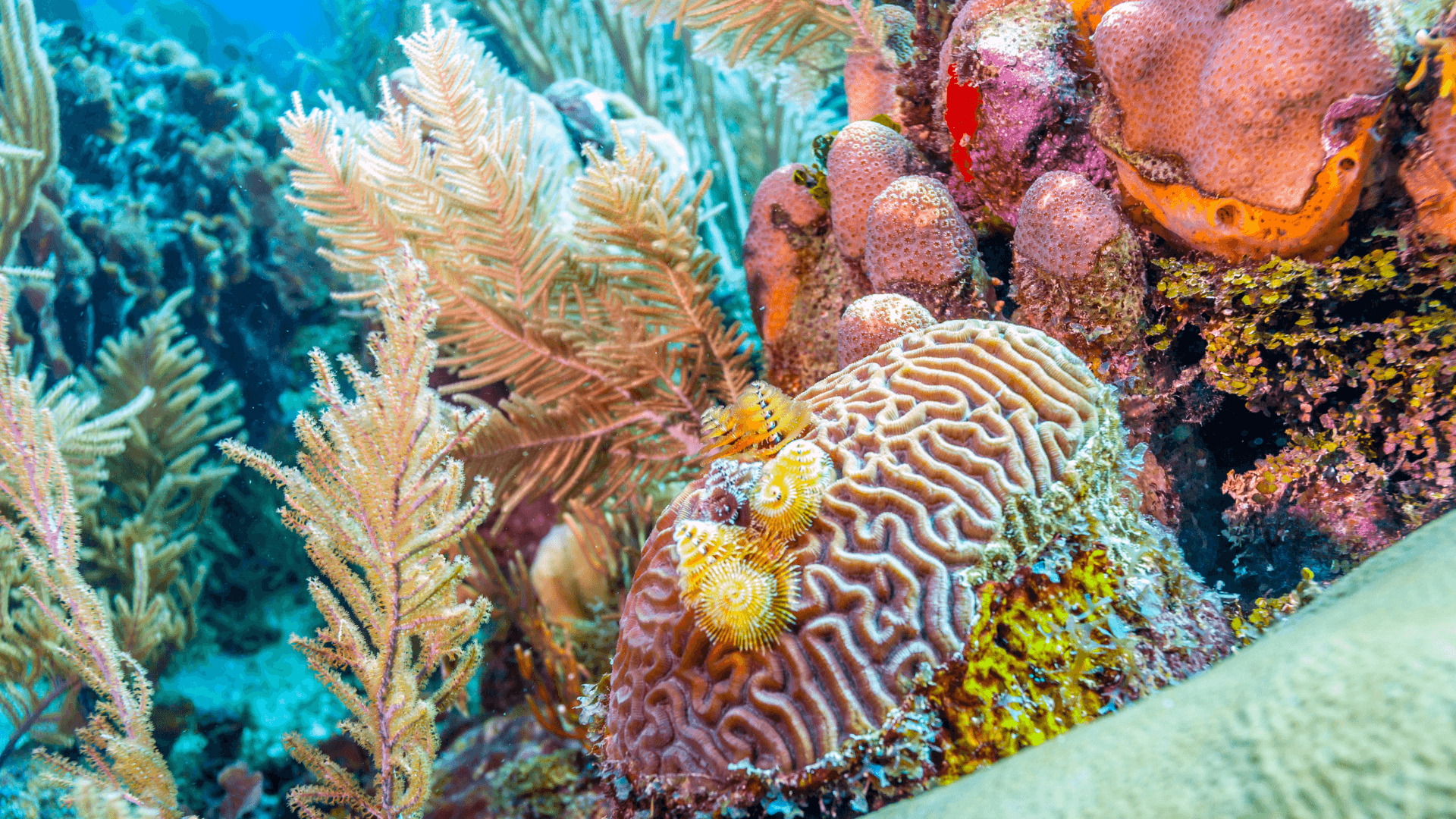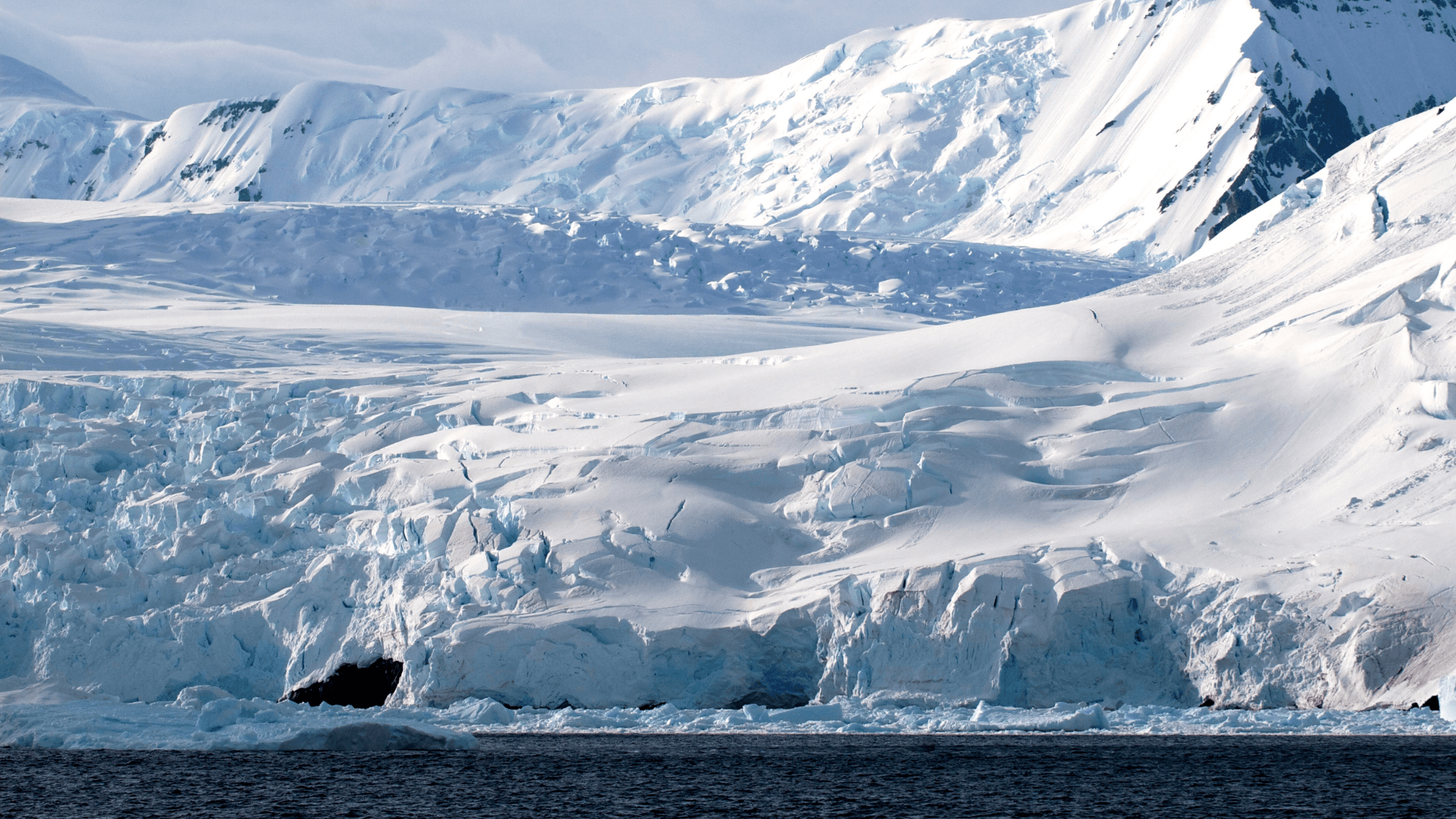How Human Rights Can Save Coral Reefs and Hold Governments Accountable
How Human Rights Can Save Coral Reefs and Hold Governments Accountable
How Human Rights Can Save Coral Reefs and Hold Governments Accountable
Oct 2, 2024
Oct 2, 2024
Oct 2, 2024

Illustrative image. Credit: Getty Images via Canva.
Illustrative image. Credit: Getty Images via Canva.
Illustrative image. Credit: Getty Images via Canva.
A new study proposes a human rights-based approach to protecting coral reefs. It highlights the importance of holding governments accountable and involving local and Indigenous communities in the conservation of these ecosystems essential for human survival.
A new study proposes a human rights-based approach to protecting coral reefs. It highlights the importance of holding governments accountable and involving local and Indigenous communities in the conservation of these ecosystems essential for human survival.
A new study proposes a human rights-based approach to protecting coral reefs. It highlights the importance of holding governments accountable and involving local and Indigenous communities in the conservation of these ecosystems essential for human survival.
Coral reefs play a vital role in maintaining marine biodiversity and provide livelihoods for approximately one billion people worldwide who depend on them for food, coastal protection, and income. However, increasing climate threats, such as rising ocean temperatures and pollution, are destroying these fragile ecosystems, which, according to a recent study that integrates legal, environmental, and scientific perspectives, result in primary human rights violations.
Led by institutions like the University of Technology Sydney (UTS), the University at Buffalo, and the University of Konstanz, the research offers an in-depth legal and environmental analysis, examining climate litigation cases and the socioeconomic impacts of reef degradation. Among the key examples studied is the case of Billy v. Australia, where the destruction of reefs was considered a violation of human rights due to governmental inaction in the face of climate change.
The Role of Human Rights in Reef Conservation
The research emphasizes that the destruction of coral reefs is not just an environmental problem but also a grave threat to human rights, especially for low-lying island nations that directly suffer the impacts of sea-level rise and loss of marine biodiversity.
In 2022, the United Nations General Assembly reaffirmed the right to a clean, healthy, and sustainable environment. This decision has profound implications for coral reef conservation by linking environmental protection to the guarantee of fundamental rights such as the right to life, food, and health. The study argues that a human rights-based approach is a powerful tool to hold governments accountable for reef preservation while protecting the rights of populations dependent on these ecosystems.
The Role of Local and Indigenous Communities
Beyond litigation and global policies, the research underscores the need to involve local and indigenous communities in reef conservation. These populations possess deep knowledge of the ecosystems accumulated over generations and can play an essential role in protecting and sustainably managing reefs.
The human rights-based approach offers a pathway for these communities to demand concrete governmental actions to preserve the reefs, including active participation in decision-making processes and implementing conservation strategies that respect indigenous populations' environmental and cultural rights.
Socioeconomic Impacts of Reef Degradation
The loss of coral reefs brings severe socioeconomic consequences, directly affecting the health and well-being of millions of people worldwide. These ecosystems are a vital source of food resources for many communities and provide a natural barrier that protects coastal areas from storms and floods.
With the collapse of reefs, dependent populations face economic challenges, such as loss of income due to decreased fishing and tourism, and health risks as food security is compromised. These impacts exacerbate social inequalities and expose the vulnerability of coastal populations, who have fewer resources to adapt to climate change.
Climate Litigation as a Tool for Justice
Cases like Billy v. Australia demonstrate that climate litigation can effectively ensure justice for communities affected by coral reef destruction. The case highlighted that governmental inaction in the face of the climate crisis and reef degradation violates the human rights of populations dependent on these ecosystems for their subsistence.
Research indicates that utilizing the judicial system to hold governments accountable can help victims of environmental destruction secure reparations and advocate for stricter measures to protect reefs. Such legal action can set important precedents for future climate litigation cases worldwide.
Environmental Governance: The Need for Transformation
Although measures to protect coral reefs already exist, the research concludes they are insufficient to address the severity of the current environmental crisis. An urgent transformation in environmental governance is necessary to ensure effective and sustainable reef protection.
The study advocates for implementing governance that integrates human rights into conservation policies, strengthening government accountability and local community participation. Only with a holistic approach involving all stakeholders will it be possible to ensure the preservation of reefs and human rights.
Integrating Legal and Community Strategies
The research highlights limitations, especially regarding the depth of conservation strategies communities can execute without formal legal support. Moreover, implementing a global human rights-based approach faces significant challenges due to countries' different environmental and legal norms.
The research emphasizes the importance of greater involvement of local and indigenous communities in reef protection initiatives to overcome those barriers. It proposes developing international policies that integrate environmental protection with the defense of human rights. The study also suggests exploring innovative conservation methods, such as bioengineering, which could complement legal approaches and offer alternative solutions for coral reef preservation.
—
The degradation of coral reefs represents not only an environmental loss but also a direct threat to the human rights of millions of people around the world. The research demonstrates that a human rights-based approach is essential to hold governments accountable and ensure they protect these vital ecosystems.
By combining environmental conservation with social justice, this study suggests a new approach to preserving coral reefs and ensuring that future generations can continue to benefit from the essential services these ecosystems provide.
—
For a deeper understanding of human rights and the legal strategies that can be employed to protect coral reefs, consult the full study. Click here to read.
Coral reefs play a vital role in maintaining marine biodiversity and provide livelihoods for approximately one billion people worldwide who depend on them for food, coastal protection, and income. However, increasing climate threats, such as rising ocean temperatures and pollution, are destroying these fragile ecosystems, which, according to a recent study that integrates legal, environmental, and scientific perspectives, result in primary human rights violations.
Led by institutions like the University of Technology Sydney (UTS), the University at Buffalo, and the University of Konstanz, the research offers an in-depth legal and environmental analysis, examining climate litigation cases and the socioeconomic impacts of reef degradation. Among the key examples studied is the case of Billy v. Australia, where the destruction of reefs was considered a violation of human rights due to governmental inaction in the face of climate change.
The Role of Human Rights in Reef Conservation
The research emphasizes that the destruction of coral reefs is not just an environmental problem but also a grave threat to human rights, especially for low-lying island nations that directly suffer the impacts of sea-level rise and loss of marine biodiversity.
In 2022, the United Nations General Assembly reaffirmed the right to a clean, healthy, and sustainable environment. This decision has profound implications for coral reef conservation by linking environmental protection to the guarantee of fundamental rights such as the right to life, food, and health. The study argues that a human rights-based approach is a powerful tool to hold governments accountable for reef preservation while protecting the rights of populations dependent on these ecosystems.
The Role of Local and Indigenous Communities
Beyond litigation and global policies, the research underscores the need to involve local and indigenous communities in reef conservation. These populations possess deep knowledge of the ecosystems accumulated over generations and can play an essential role in protecting and sustainably managing reefs.
The human rights-based approach offers a pathway for these communities to demand concrete governmental actions to preserve the reefs, including active participation in decision-making processes and implementing conservation strategies that respect indigenous populations' environmental and cultural rights.
Socioeconomic Impacts of Reef Degradation
The loss of coral reefs brings severe socioeconomic consequences, directly affecting the health and well-being of millions of people worldwide. These ecosystems are a vital source of food resources for many communities and provide a natural barrier that protects coastal areas from storms and floods.
With the collapse of reefs, dependent populations face economic challenges, such as loss of income due to decreased fishing and tourism, and health risks as food security is compromised. These impacts exacerbate social inequalities and expose the vulnerability of coastal populations, who have fewer resources to adapt to climate change.
Climate Litigation as a Tool for Justice
Cases like Billy v. Australia demonstrate that climate litigation can effectively ensure justice for communities affected by coral reef destruction. The case highlighted that governmental inaction in the face of the climate crisis and reef degradation violates the human rights of populations dependent on these ecosystems for their subsistence.
Research indicates that utilizing the judicial system to hold governments accountable can help victims of environmental destruction secure reparations and advocate for stricter measures to protect reefs. Such legal action can set important precedents for future climate litigation cases worldwide.
Environmental Governance: The Need for Transformation
Although measures to protect coral reefs already exist, the research concludes they are insufficient to address the severity of the current environmental crisis. An urgent transformation in environmental governance is necessary to ensure effective and sustainable reef protection.
The study advocates for implementing governance that integrates human rights into conservation policies, strengthening government accountability and local community participation. Only with a holistic approach involving all stakeholders will it be possible to ensure the preservation of reefs and human rights.
Integrating Legal and Community Strategies
The research highlights limitations, especially regarding the depth of conservation strategies communities can execute without formal legal support. Moreover, implementing a global human rights-based approach faces significant challenges due to countries' different environmental and legal norms.
The research emphasizes the importance of greater involvement of local and indigenous communities in reef protection initiatives to overcome those barriers. It proposes developing international policies that integrate environmental protection with the defense of human rights. The study also suggests exploring innovative conservation methods, such as bioengineering, which could complement legal approaches and offer alternative solutions for coral reef preservation.
—
The degradation of coral reefs represents not only an environmental loss but also a direct threat to the human rights of millions of people around the world. The research demonstrates that a human rights-based approach is essential to hold governments accountable and ensure they protect these vital ecosystems.
By combining environmental conservation with social justice, this study suggests a new approach to preserving coral reefs and ensuring that future generations can continue to benefit from the essential services these ecosystems provide.
—
For a deeper understanding of human rights and the legal strategies that can be employed to protect coral reefs, consult the full study. Click here to read.
Coral reefs play a vital role in maintaining marine biodiversity and provide livelihoods for approximately one billion people worldwide who depend on them for food, coastal protection, and income. However, increasing climate threats, such as rising ocean temperatures and pollution, are destroying these fragile ecosystems, which, according to a recent study that integrates legal, environmental, and scientific perspectives, result in primary human rights violations.
Led by institutions like the University of Technology Sydney (UTS), the University at Buffalo, and the University of Konstanz, the research offers an in-depth legal and environmental analysis, examining climate litigation cases and the socioeconomic impacts of reef degradation. Among the key examples studied is the case of Billy v. Australia, where the destruction of reefs was considered a violation of human rights due to governmental inaction in the face of climate change.
The Role of Human Rights in Reef Conservation
The research emphasizes that the destruction of coral reefs is not just an environmental problem but also a grave threat to human rights, especially for low-lying island nations that directly suffer the impacts of sea-level rise and loss of marine biodiversity.
In 2022, the United Nations General Assembly reaffirmed the right to a clean, healthy, and sustainable environment. This decision has profound implications for coral reef conservation by linking environmental protection to the guarantee of fundamental rights such as the right to life, food, and health. The study argues that a human rights-based approach is a powerful tool to hold governments accountable for reef preservation while protecting the rights of populations dependent on these ecosystems.
The Role of Local and Indigenous Communities
Beyond litigation and global policies, the research underscores the need to involve local and indigenous communities in reef conservation. These populations possess deep knowledge of the ecosystems accumulated over generations and can play an essential role in protecting and sustainably managing reefs.
The human rights-based approach offers a pathway for these communities to demand concrete governmental actions to preserve the reefs, including active participation in decision-making processes and implementing conservation strategies that respect indigenous populations' environmental and cultural rights.
Socioeconomic Impacts of Reef Degradation
The loss of coral reefs brings severe socioeconomic consequences, directly affecting the health and well-being of millions of people worldwide. These ecosystems are a vital source of food resources for many communities and provide a natural barrier that protects coastal areas from storms and floods.
With the collapse of reefs, dependent populations face economic challenges, such as loss of income due to decreased fishing and tourism, and health risks as food security is compromised. These impacts exacerbate social inequalities and expose the vulnerability of coastal populations, who have fewer resources to adapt to climate change.
Climate Litigation as a Tool for Justice
Cases like Billy v. Australia demonstrate that climate litigation can effectively ensure justice for communities affected by coral reef destruction. The case highlighted that governmental inaction in the face of the climate crisis and reef degradation violates the human rights of populations dependent on these ecosystems for their subsistence.
Research indicates that utilizing the judicial system to hold governments accountable can help victims of environmental destruction secure reparations and advocate for stricter measures to protect reefs. Such legal action can set important precedents for future climate litigation cases worldwide.
Environmental Governance: The Need for Transformation
Although measures to protect coral reefs already exist, the research concludes they are insufficient to address the severity of the current environmental crisis. An urgent transformation in environmental governance is necessary to ensure effective and sustainable reef protection.
The study advocates for implementing governance that integrates human rights into conservation policies, strengthening government accountability and local community participation. Only with a holistic approach involving all stakeholders will it be possible to ensure the preservation of reefs and human rights.
Integrating Legal and Community Strategies
The research highlights limitations, especially regarding the depth of conservation strategies communities can execute without formal legal support. Moreover, implementing a global human rights-based approach faces significant challenges due to countries' different environmental and legal norms.
The research emphasizes the importance of greater involvement of local and indigenous communities in reef protection initiatives to overcome those barriers. It proposes developing international policies that integrate environmental protection with the defense of human rights. The study also suggests exploring innovative conservation methods, such as bioengineering, which could complement legal approaches and offer alternative solutions for coral reef preservation.
—
The degradation of coral reefs represents not only an environmental loss but also a direct threat to the human rights of millions of people around the world. The research demonstrates that a human rights-based approach is essential to hold governments accountable and ensure they protect these vital ecosystems.
By combining environmental conservation with social justice, this study suggests a new approach to preserving coral reefs and ensuring that future generations can continue to benefit from the essential services these ecosystems provide.
—
For a deeper understanding of human rights and the legal strategies that can be employed to protect coral reefs, consult the full study. Click here to read.
Share on:
Share on:
See Also
See Also

DeepSeek AI: The Chinese Chatbot That Is Shaking Up the Global Market
Feb 7, 2025

Study Reveals That an Active Social Life Can Reduce Dementia Risk
Feb 4, 2025

Lunar New Year 2025: The Arrival of the Year of the Snake
Jan 30, 2025

New Hypothesis on the Origin of Dinosaurs Challenges Traditional Concepts
Jan 27, 2025

Emotions and the Human Body: Millennia-Old Connections in Neo-Assyrian Texts
Dec 20, 2024

Study Links Air Pollution to Risk of Venous Thromboembolism
Dec 20, 2024

Potentially Habitable Environment on Mars Discovered by Perseverance
Dec 20, 2024

Collapse of the Conger Ice Shelf: Alert for East Antarctica
Dec 20, 2024

Revolution XRISM: New Discoveries About Supermassive Black Holes
Oct 15, 2024

Study Shows that Duplication of the AMY1 Gene, Related to Starch Digestion, Predates Agriculture
Oct 14, 2024

Births in the EU Fall Below 4 Million for the First Time Since 1960
Oct 11, 2024

Excavation in Denmark Reveals 50 Incredibly Preserved Viking Skeletons
Oct 10, 2024

Study Indicates Higher Incidence of Asthma and Allergic Rhinitis in People Born in Autumn and Winter in Finland
Oct 9, 2024

Study Demonstrates Similarities Between Ice Age Adolescents' Puberty and Modern Youth
Oct 8, 2024

DNA Analysis in 3,600-Year-Old Chinese Mummies Reveals World's Oldest Cheese
Oct 7, 2024

Study Reveals Genetic Stability of Southern African Populations Over 10 Millennia
Oct 4, 2024

Nine Mythical Places That May Have Existed, According to Archaeological Discoveries
Oct 3, 2024

How Human Rights Can Save Coral Reefs and Hold Governments Accountable
Oct 2, 2024

Carbon Brief Report Indicates 2024 Could Be the Hottest Year on Record
Sep 4, 2024

Climate Determines Mammal Distribution, Reveals Study by North Carolina State University
Sep 4, 2024

DeepSeek AI: The Chinese Chatbot That Is Shaking Up the Global Market
Feb 7, 2025

Study Reveals That an Active Social Life Can Reduce Dementia Risk
Feb 4, 2025

Lunar New Year 2025: The Arrival of the Year of the Snake
Jan 30, 2025

New Hypothesis on the Origin of Dinosaurs Challenges Traditional Concepts
Jan 27, 2025

Emotions and the Human Body: Millennia-Old Connections in Neo-Assyrian Texts
Dec 20, 2024

Study Links Air Pollution to Risk of Venous Thromboembolism
Dec 20, 2024

Potentially Habitable Environment on Mars Discovered by Perseverance
Dec 20, 2024

Collapse of the Conger Ice Shelf: Alert for East Antarctica
Dec 20, 2024

Revolution XRISM: New Discoveries About Supermassive Black Holes
Oct 15, 2024

Study Shows that Duplication of the AMY1 Gene, Related to Starch Digestion, Predates Agriculture
Oct 14, 2024

Births in the EU Fall Below 4 Million for the First Time Since 1960
Oct 11, 2024

Excavation in Denmark Reveals 50 Incredibly Preserved Viking Skeletons
Oct 10, 2024

Study Indicates Higher Incidence of Asthma and Allergic Rhinitis in People Born in Autumn and Winter in Finland
Oct 9, 2024

Study Demonstrates Similarities Between Ice Age Adolescents' Puberty and Modern Youth
Oct 8, 2024

DNA Analysis in 3,600-Year-Old Chinese Mummies Reveals World's Oldest Cheese
Oct 7, 2024

Study Reveals Genetic Stability of Southern African Populations Over 10 Millennia
Oct 4, 2024

Nine Mythical Places That May Have Existed, According to Archaeological Discoveries
Oct 3, 2024

How Human Rights Can Save Coral Reefs and Hold Governments Accountable
Oct 2, 2024

Carbon Brief Report Indicates 2024 Could Be the Hottest Year on Record
Sep 4, 2024

Climate Determines Mammal Distribution, Reveals Study by North Carolina State University
Sep 4, 2024